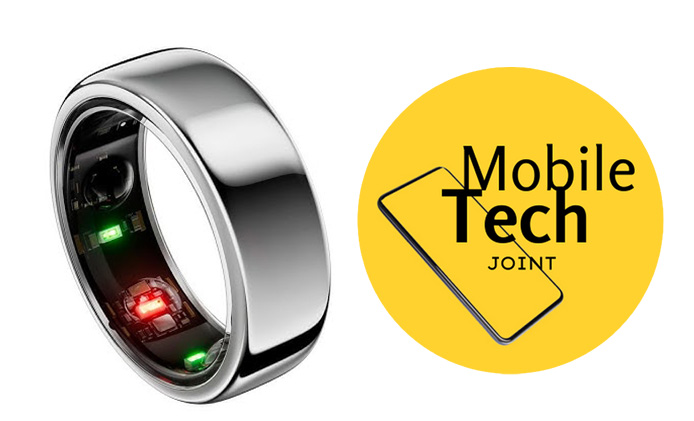The Samsung Galaxy Ring has quickly become a favorite among wearable tech enthusiasts, thanks to its sleek design and impressive features. In today’s rapidly advancing tech landscape, one of the key considerations for any device is its compatibility with 5G networks. As 5G continues to expand, understanding its impact on wearables like the Galaxy Ring is essential. So, are the Samsung Galaxy Ring ready for 5G?

Is Samsung Galaxy Ring Compatible with 5G Networks?
5G is the fifth generation of mobile network technology, promising faster speeds, lower latency, and the ability to connect more devices simultaneously. Unlike its predecessors, 5G offers a significant leap in performance, enabling new applications and enhancing the overall user experience. For devices, this means quicker data transfers, seamless streaming, and more reliable connections.
Overview of Samsung Galaxy Ring
The Samsung Galaxy Ring stands out in the wearable market for its combination of style and functionality. Designed to be more than just a fitness tracker, it offers a wide range of features, including advanced health monitoring, smart notifications, and integration with other Samsung devices. Its compact design ensures it fits comfortably on your finger while delivering powerful tech capabilities.
Compatibility with 5G Networks
When it comes to 5G compatibility, the Samsung Galaxy Ring faces certain limitations. Unlike smartphones or tablets, which directly benefit from 5G’s high-speed data capabilities, the Galaxy Ring does not inherently support 5G connectivity. This is primarily because the ring is designed to function as a companion device, relying on a smartphone or other connected devices for its network needs. In contrast, other Samsung devices like the Galaxy S series smartphones are fully equipped to harness the power of 5G.
How 5G Enhances Wearable Technology
While the Galaxy Ring itself may not directly connect to 5G networks, the benefits of 5G still trickle down to wearable technology. For example, when paired with a 5G-enabled smartphone, the ring can deliver faster and more reliable data synchronization. This means quicker updates, more responsive apps, and the ability to handle more complex tasks with ease. Additionally, 5G’s low latency opens the door to new use cases, such as real-time health monitoring and more immersive augmented reality experiences.
User Experience with 5G and the Galaxy Ring
Users who have paired their Galaxy Ring with 5G-enabled devices have reported noticeable improvements in performance. Faster synchronization between the ring and smartphone, quicker access to cloud-based services, and more responsive notifications are just a few of the benefits cited by early adopters. These enhancements contribute to a smoother, more integrated user experience, making the Galaxy Ring an even more valuable accessory.
Future of Wearables and 5G
Looking ahead, 5G is expected to play a significant role in the evolution of wearable technology. As network coverage expands and more devices become 5G-compatible, wearables like the Galaxy Ring will likely see new features and capabilities emerge. Samsung, known for being at the forefront of innovation, is expected to continue leading the charge in integrating 5G with wearable tech, potentially developing future versions of the Galaxy Ring with enhanced connectivity.
Alternatives for 5G Connectivity
For users who prioritize 5G but own a Galaxy Ring, there are alternative solutions. Pairing the ring with a 5G smartphone or using a 5G hotspot can help you take full advantage of the network’s benefits. Additionally, other Samsung wearables like the Galaxy Watch series offer more direct 5G capabilities, making them suitable companions for those seeking a more integrated 5G experience.
Expert Opinions
Tech experts agree that 5G is set to revolutionize wearable technology, even if the current generation of devices like the Galaxy Ring doesn’t fully support it yet. The increased speed, reduced latency, and improved connectivity offered by 5G are expected to drive the development of new, more powerful wearables in the near future. Market trends indicate growing consumer demand for 5G compatibility, signaling that future iterations of devices like the Galaxy Ring may include more advanced network capabilities.
Conclusion
While the Samsung Galaxy Ring may not directly support 5G, its integration with 5G-enabled devices allows users to enjoy many of the network’s benefits. As 5G continues to shape the future of technology, staying connected in a 5G world is more important than ever. Whether through companion devices or alternative wearables, ensuring compatibility with this next-generation network will be key to getting the most out of your tech.
Also Check:
- MEE Audio Pebbles True Wireless Earbuds: Lightweight, Comfortable, and Packed with Features
- ADVANCED SOUND GROUP ADV. Model 3 Wired High-Resolution In-Ear Monitors: Live Edition for Musicians
- CCICITA X9 Neckband Bluetooth Headphones: 200 Hours Playback Time with Advanced Features for $45.99
- How to Take Screenshot on iPad Pro
- 1MORE Piston Fit In-Ear Earphones: Stylish, Affordable, and Engineered for Quality Sound
